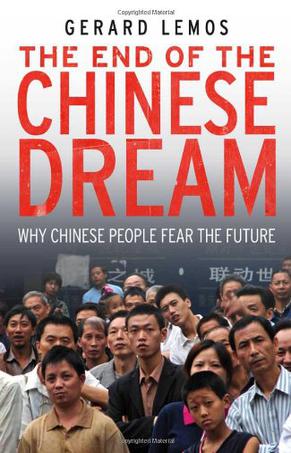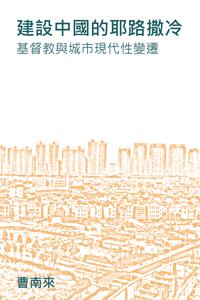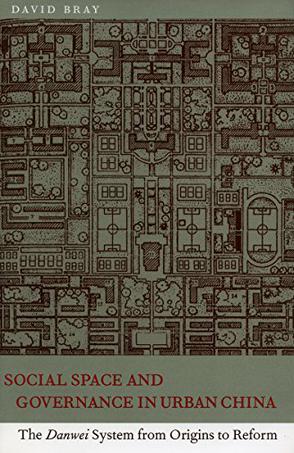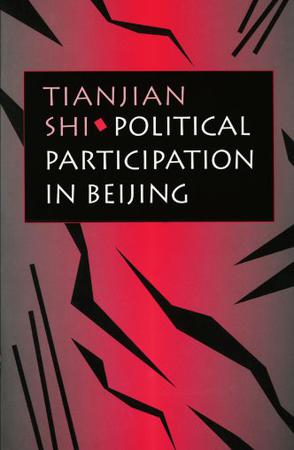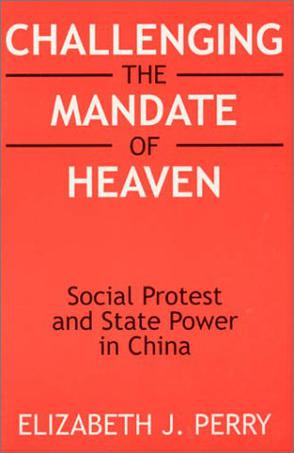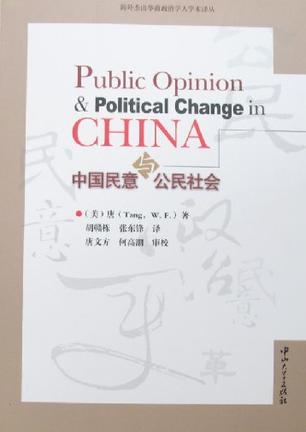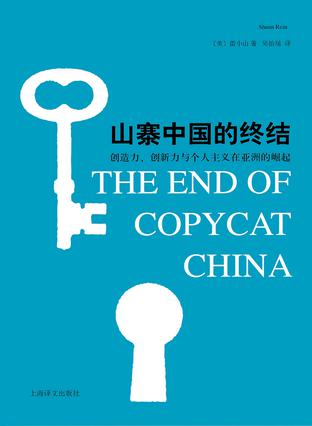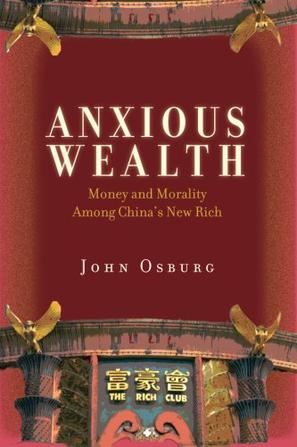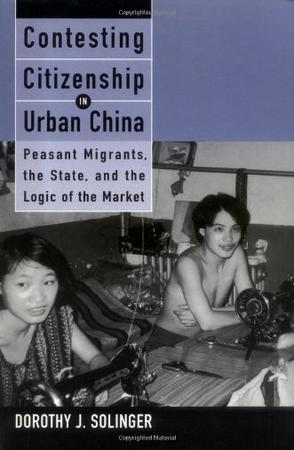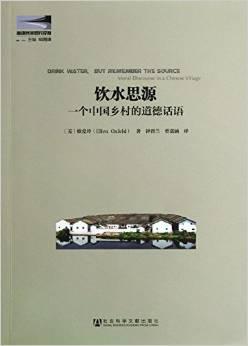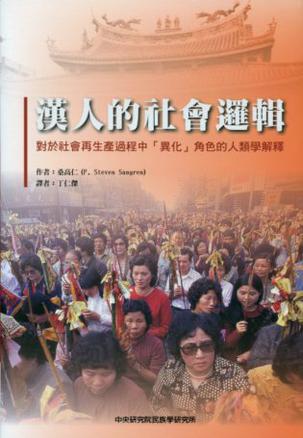欢迎来到相识电子书!
标签:海外中国研究
-
The End of the Chinese Dream
Glossy television images of happy, industrious, and increasingly prosperous workers show a bright view of life in twenty-first-century China. But behind the officially approved story is a different reality, Gerard Lemos reveals in this extensively researched book. Lemos conducted hundreds of interviews with Chinese men and women in non-westernized areas distant from such cities as Beijing and Shanghai. He reports that the lives his subjects describe belie the myth of a harmonious, cohesive Chinese society. Much as the government promotes such a positive image, everyday people in China are beleaguered by immense social and community problems as well as personal, family, and financial anxieties. Lemos investigates a China beyond the tourist trail. He offers a revealing account of the thoughts and feelings of Chinese people regarding all facets of their lives, from education to health care, unemployment to old age, politics to wealth. Taken together, the stories of these men and women bring to light a broken society, one whose people are frustrated, angry, sad, and often fearful about the circumstances of their lives. The author considers the implications of these findings and analyzes how China's community and social problems threaten the ambitious nation's hopes for a cohesive future. -
建設中國的耶路撒冷
與以往學界對中國基督教活躍於內陸鄉村社會的認識有所不同,本書側重描繪基督教在發達的沿海商業中心溫州迅猛崛起的軌跡,並以溫州為例,剖析宗教實踐、宗教空間和宗教話語在中國城市現代性變遷中所扮演的重要角色,內容涉及政教關係、民營資本主義發展、日常消費、性別關係、道德文化、階層關係、城鄉差異以及農民工的城市融入。作者為寫作本書所做的人類學田野調查和生活史素材的收集歷時近兩年,勾勒出一幅新興城市商業精英所引領的宗教復興之圖景。通過著重記錄商人基督徒群體在日常框架下對現代性與經濟發展的理解以及他們的身份建構,力圖從社會文化層面揭秘改革時期都市基督教的驚人增長。本書強調基督教並非一個內部高度同質的意義體系,而可將其當作一面棱鏡,多角度透視當代中國社會文化變遷的宏觀過程。本書可用作中國人類學/社會學、都市研究、宗教研究以及定性研究方法的大學教材。 「對於對政教關係或對現代中國宗教實踐有興趣的人士來說,這是一本必讀書,作者淺白易懂的文字適合用於本科教材。」──《中國季刊》(The China Quarterly) 「這是第一部關於中國基督新教的民族志專著。曹南來博士成功地粉碎基督教在中國作為洋教的刻板認識,讓讀者窺見一個已高度本地化、去政治化的宗教,而這一宗教又與資本主義經濟行為形成高度互滲。」──《亞洲人類學》(Asian Anthropology) -
Contestation and Adaptation
Contestation and Adaptation unravels the complexities of national-identity contestation among various ethnic minority groups in China. It focuses on the interactions between domestic and international forces that inform ethnic groups' national-identity contestation, positing a theoretical framework where international factors play a significant role in determining why and when ethnic groups will contest the national identities imposed on them by central governments as part of the nation-building process. -
Behind the Red Door
A sexual revolution is underway in China. Traditional morals and behavior are being turned on their head as the country’s climb towards economic prosperity brings sex into the open. But it is a revolution distinctly different from the one experienced in the West and has taken unexpected twists and turns. Written in a highly engaging and readable style, Behind the Red Door: Sex in China takes the reader on a journey from ancient days, when China’s rulers relied on shockingly vivid Daoist sex manuals, to the present, where China is torn between sexual orthodoxy and Western-style openness. -
Social Space and Governance in Urban China
Review "[A] meticulously crafted piece of research....highly stimulating and important..." -- The China Journal, January 2006 Review "Bray makes his case quite admirably. The argument is tightly woven. The framework is consistently applied. The conclusions are illuminating."—H-Net Reviews “[A] meticulously crafted piece of research....a highly stimulating and important book....It is a fine example of the integration of social science theories with China studies...”—The China Journal “...this book is an important contribution to the literature, a leading example of scholarship on governmentality, and one that should inspire scholars to conduct further studies of the danwei and related institutions with spatial characteristics in urban China.”—The China Review -
中国妇女与农村发展
著名人类学家费孝通在20世纪30年代深入云南禄村就农地制进行了一项拓荒性研究。半个多世纪之后,加拿大学者宝森重访该地区,并进行了为期十年的田野考察。在追溯以往60年中国政治、经济、历史巨变的情形下,作者围绕“中国妇女与农村发展”这个主题,以独特的视角与方法挖掘并梳理了缠足与纺织、农地制、农业与非农业就业、贫困与富裕、婚姻家庭、人口变迁及政治文化等诸多领域的社会性别问题,从而再现了乡土中国汉人社会性别制度嬗变的微观动态。 -
Political Participation in Beijing
In this first scientific survey of political participation in the People's Republic of China, Tianjian Shi identifies twenty-eight participatory acts and groups them into seven areas: voting, campaign activities, appeals, adversarial activities, cronyism, resistance, and boycotts. What he finds will surprise many observers. Political participation in a closed society is not necessarily characterized by passive citizens driven by regime mobilization aimed at carrying out predetermined goals. Beijing citizens acknowledge that they actively engage in various voluntary participatory acts to articulate their interests. In a society where communication channels are controlled by the government, Shi discovers, access to information from unofficial means becomes the single most important determinant for people's engaging in participatory acts. Government-sponsored channels of appeal are easily accessible to ordinary citizens, so socioeconomic resources are unimportant in determining who uses these channels. Instead, voter turnout is found to be associated with the type of work unit a person belongs to, subjective evaluations of one's own economic status, and party affiliation. Those most likely to engage in campaign activities, adversarial activities, cronyism, resistance, and boycotts are the more disadvantaged groups in Beijing. While political participation in the West fosters a sense of identification, the unconventional modes of participation in Beijing undermine the existing political order. -
Governing China's Population
China’s giant project in social engineering has drawn worldwide attention, both because of its coercive enforcement of strict birth limits, and because of the striking changes that have occurred in China’s population: one of the fastest fertility declines in modern history and a gender gap among infants that is the highest in the world. These changes have contributed to an imminent crisis of social security for a rapidly aging population, provoking concern in China and abroad. What political processes underlie these population shifts? What is the political significance of population policy for the PRC regime, the Chinese people, and China’s place in the world? The book documents the gradual “governmentalization” of China’s population after 1949, a remarkable buildup of capacity for governance by the regime, the professions, and individuals. Since the turn of the millennium the regime has initiated a drastic shift from “hard” Leninist methods of birth planning toward “soft” neoliberal approaches involving indirect regulation by the state and self-regulation by citizens themselves. Population policy, once a lagging sector in China’s transition from communism, is now helping lead the country toward more modern and internationally accepted forms of governance. Governing China’s Population tells the story of these shifts, from the perspectives of both regime and society, based on internal documents, long-term fieldwork, and interviews with a wide range of actors—policymakers and implementers, propagandists and critics, compliers and resisters. This study also illuminates the far-reaching consequences for China’s society and politics of deep state intrusion in individual reproduction. Like Mao’s Great Leap Forward, Deng’s one-child policy has created vast social suffering and human trauma. Yet power over population has also been positive and productive, promoting China’s global rise by creating new kinds of “quality” persons equipped to succeed in the world economy. Politically, the PRC’s population project has strengthened the regime and created a whole new field of biopolitics centering on the production and cultivation of life itself. Drawing on approaches from political science and anthropology that are rarely combined, this book develops a new kind of interdisciplinary inquiry that expands the domain of the political in provocative ways. The book provides fresh answers to broad questions about China’s Leninist transition, regime capacity, “science” and “democracy,” and the changing shape of Chinese modernity. -
Challenging the Mandate of Heaven
Social science theories of contentious politics have been based almost exclusively on evidence drawn from the European and American experience, and classic texts in the field make no mention of either the Chinese Communist revolution or the Cultural Revolution - surely two of the most momentous social movements of the twentieth century. Moreover, China's record of popular upheaval stretches back well beyond this century, indeed all the way back to the third century B.C. By bringing together studies of protest that span the Imperial, Republic, and Communist eras, this book introduces Chinese patterns and provides a forum to consider ways in which contentious politics in China might serve to reinforce, refine or reshape theories derived from Western cases. -
中国民意与公民社会
《中国民意与公民社会》研究当代中国公众政治态度和政治行为的形成和对中国公民社会发展的作用。作者在第一章中首先对中国政治环境与西方政治环境的区别进行了描述,然后在第二章中讨论民意调查在中国的实施和问题,第三章讨论中国公众对政权的支持度,第四章研究媒体对公众政治态度的影响,第五章谈中国的人际关系对公民社会形成的影响。接下来的部分讨论公民政治行为,包括第六章公民表达意见的程度和渠道,第七章有关职工政治参与和解决劳动纠纷的研究,第八章关于知识分子对社会变革作用的讨论。在第九章结论中,作者总结了民意在中国XX主义政治制度中影响决策和公民社会发展的特点。上述研究发现,即使是在中国目前的政治环境下,民意有可能向公民社会发展,也可以影响政府决策和中国的政治变迁。 作者从三个大的理论方面探讨中国民意的形成,即现代化与市场经济,文化传统,政治制度,结果发现现代化和市场经济对民意的影响最大,文化传统其次,政治制度最少。这一发现与西方主流政治学派的观点不同,西方政治学认为,中国的民意是被政府操纵的,而且无法影响政府的决策。从这个意义上说,这本书是在西方政治学中研究中国民意的一次突破。 《中国民意与公民社会 》在研究当代中国政治方面的另一个突破是它的实证性。这是第一部从全国范围研究中国公民政治态度和行为的英文著作,它包含了对几万人的民意调查数据,时间从1987年到2004年,其中198X年5月和10月国家经济体制改革委员会的中国城市调查,更是记录“XXXXX风波”绝无仅有的科学依据。 很显然,作者关心的不是中国如何在一夜之间民主化.而是关心民意如何向公民社会发展。在一个公民社会中,百姓应当有参与的愿望,团结合作、互相尊重的精神,忍让和容忍不同意见的风格,以及独立思考的能力。有了公民社会,民主才可以运转和持续,没有公民社会,再好的民主制度也无法实施。 -
山寨中国的终结
中国能否通过创新,走出长期经济放缓的困境? 雷小山认为可以。 毫无疑问,雷小山并不是唯一认为中国企业正在步入创新阶段的人。2014年,波士顿咨询公司(BCG)把4家中国企业(联想、小米、腾讯和华为)纳入其年度全球最具创新力的50家企业榜单。 雷小山认为,中国如今将开启创新之路,因为它不得不如此。而过去它之所以没这么做,也主要是还不需要。 在《山寨中国的终结》中,雷小山写道,在一个基本商品供应不足的国家,发展最先进技术的动力往往不足。如果靠山寨就能赚钱,谁还会去关心技术创新?这也正是很多中国企业在过去几十年里所做的。 在赢得向国内消费者提供基本商品的战役后,如今,中国企业被迫转向创新。由于供应基本商品这颗“低垂的果实”已被采摘,这些企业不得不开始在中国或国外市场攀爬价值链的更高端。 那么,这些转型的中国故事是个例,还是全局?创新力和个人主义是否正在亚洲崛起? 在5万份消费者调查报告的基础上,为了获得贴近事实的观察视角,雷小山与普通消费者、公司高管、最具创新能力的企业创始人,甚至是官员进行面对面的深入交谈。 无论如何,对于中国而言,唯一确定不变的,就是这个国家正在快速改变。 -
Anxious Wealth
Who exactly are China's new rich? This pioneering investigation introduces readers to the private lives—and the nightlives—of the powerful entrepreneurs and managers redefining success and status in the city of Chengdu. Over the course of more than three years, anthropologist John Osburg accompanied, and in some instances assisted, wealthy Chinese businessmen as they courted clients, partners, and government officials. Drawing on his immersive experiences, Osburg invites readers to join him as he journeys through the new, highly gendered entertainment sites for Chinese businessmen, including karaoke clubs, saunas, and massage parlors—places specifically designed to cater to the desires and enjoyment of elite men. Within these spaces, a masculinization of business is taking place. Osburg details the complex code of behavior that governs businessmen as they go about banqueting, drinking, gambling, bribing, exchanging gifts, and obtaining sexual services. These intricate social networks play a key role in generating business, performing social status, and reconfiguring gender roles. But many entrepreneurs feel trapped by their obligations and moral compromises in this evolving environment. Ultimately, Osburg examines their deep ambivalence about China's future and their own complicity in the major issues of post-Mao Chinese society—corruption, inequality, materialism, and loss of trust. -
Capitalism from Below
More than 630 million Chinese have escaped poverty since the 1980s, reducing the fraction remaining from 82 to 10 percent of the population. This astonishing decline in poverty, the largest in history, coincided with the rapid growth of a private enterprise economy. Yet private enterprise in China emerged in spite of impediments set up by the Chinese government. How did private enterprise overcome these initial obstacles to become the engine of China's economic miracle? Where did capitalism come from? Studying over 700 manufacturing firms in the Yangzi region, Victor Nee and Sonja Opper argue that China's private enterprise economy bubbled up from below. Through trial and error, entrepreneurs devised institutional innovations that enabled them to decouple from the established economic order to start up and grow small, private manufacturing firms. Barriers to entry motivated them to build their own networks of suppliers and distributors, and to develop competitive advantage in self-organized industrial clusters. Close-knit groups of like-minded people participated in the emergence of private enterprise by offering financing and establishing reliable business norms. This rapidly growing private enterprise economy diffused throughout the coastal regions of China and, passing through a series of tipping points, eroded the market share of state-owned firms. Only after this fledgling economy emerged as a dynamic engine of economic growth, wealth creation, and manufacturing jobs did the political elite legitimize it as a way to jump-start China's market society. Today, this private enterprise economy is one of the greatest success stories in the history of capitalism. -
Subaltern China
Behind China’s growing economic and political power is a vast underworld of marginalized social groups. In this powerful and timely book, Wanning Sun focuses on the country’s hundreds of millions of rural migrant workers, who embody China's most intractable problems of inequality. Drawing on rich and extensive fieldwork, the author argues that despite the critical role their labor has played in enabling and sustaining the country’s remarkable economic growth, workers and peasants have become the nation’s “subalterns.” Sun focuses especially on the role of media and culture in negotiating the unequal relationships that exist between various social groups. She shows that in the face of the harsh reality of injustice and discrimination, China’s rural migrants engage in media and cultural practices that are at once both mundane and profound—invariably imbued with hope and dignity, and motivated by the dream of a better life. Exploring the cultural politics of inequality in post-Mao China, this engaging and compelling book will be essential reading for all concerned with the increasing centrality of media and the cultural politics of representation in our highly digitalized and mediated world. -
饮水思源
人类学家在研究道德话语时会感到特别棘手,因为叙述与检验一种文化的道德话语很容易被误解为要对那种话语所暗示的“道德”进行评判,而这恰恰不是人类学家的使命所在。但是,在文化种类多样、范围宽广的中国,研究道德话语却十分必要。改革开放以来,中国的经济生活与伦理价值观发生了剧烈变化。在不少国人眼中,传统的道德体系已经趋于瓦解。那么,留存于中华文化达千百年之久的道德话语是否也跟着消失了呢? 在《饮水思源(一个中国乡村的道德话语)》中,欧爱玲教授对广东梅县客家乡村——月影塘的田野调查发现,当地人有关道德互惠的观念并未就此冻结。作为它们表现形式和外在内容的道德话语,反而随着时间推移与环境场域的革新不断进化,有时甚至超越一般意义上的等级秩序指向而变得极富弹性。月影塘的故事,或许正是城镇化经济辐射之下乡村社会关系在特殊文化背景中动态演变的缩影。 -
漢人的社會邏輯
丁仁傑先生翻譯美國籍桑高仁教授(P. Steven Sangren)這本《漢人的社會邏輯:對於社會再生產過程中「異化」角色的人類學解釋》,對台灣人類學的漢人研究貢獻很大,主要原因有幾方面:第一,這是本艱澀難讀的書,桑高仁的論述,並非立基於傳統民族誌個案之上,即非根據第一手 田野材料所衍生出來的理論討論,而是對台灣人類學漢人社會研究理論發展的一個整體評估。其次,為了讓讀者深入瞭解桑高仁的多重複雜論點,丁仁傑先生不畏艱難,投入更多心力,不但深入淺出地翻譯原文,更細讀原書中所涉及的各派論點,詳細比較其與桑高仁觀點的異同,以「譯按」的方式,附加在譯文中,協助讀者理解文本的意義。
热门标签
下载排行榜
- 1 梦的解析:最佳译本
- 2 李鸿章全传
- 3 淡定的智慧
- 4 心理操控术
- 5 哈佛口才课
- 6 俗世奇人
- 7 日瓦戈医生
- 8 笑死你的逻辑学
- 9 历史老师没教过的历史
- 10 1分钟和陌生人成为朋友

